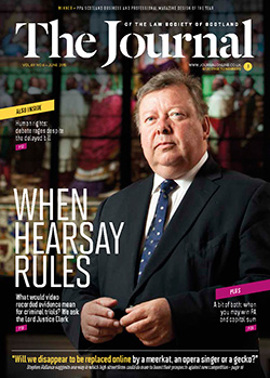Source of disputes

Scottish Borders Council has been in the headlines recently for its outsourcing practices, having proposed to outsource its ICT (information and communications technology) department, with rumours that the jobs could end up in Edinburgh instead of the Borders. This is one of several recent outsourcing decisions for the council. Outsourcing matters frequently end up in the headlines, and occasionally in the courts (see BSkyB v HP (formerly EDS) [2010] EWHC 86 (TCC) and Astra Zeneca UK v IBM [2011] EWHC 306 (TCC) for two high-profile IT outsourcing disputes).
New ISO guidance
The pace of growth in outsourcing has shown no sign of decline in this age of specialisation. This has led to the ISO (International Organization for Standardization) developing the ISO:37500:2014 Guidance on Outsourcing. ISO:37500 may not be law, but the international standard is likely to play a part – especially if any references to industry best practice are incorporated into the terms and conditions of outsourcing deals. ISO:37500 aims to provide guidance on the risks faced by businesses at different stages of the outsourcing process, together with direction on governance, to “enable mutually beneficial collaborative relationships”, as it states.
Terms to watch
The battle of who bears what risk in the supply chain often used to mean negotiated contracts and appropriate due diligence to try and manage the known versus the unknown risks. However, the rapid increase of outsourcing in general (as well as niche diversification in what is being outsourced to pick the best supplier), combined with the overall primary aim of reducing costs, means less time or money to spend on negotiations. As such, the supplier’s terms and conditions are likely to be put forward at the outset, and the customer will require to satisfy itself as to whether it is prepared to accept the risks those terms may bring, or whether to try to negotiate or walk away.
Certain terms that the customer will usually focus on include confidentiality, liability, provision of information, co-operation, step-in rights and other remediation plans for breaches and other events, termination and exit plans.
Exit provisions proved problematic in Astra Zeneca, where the termination of the relationship was supposed to allow the changeover of various services back to Astra Zeneca or to the replacement supplier, from IBM, who were providing IT infrastructure services. Dispute arose over the extent of IBM’s obligations to provide services during the exit period and what payment would be due for those services. Examples of particularly problematic areas included “Shared Services” (meaning Astra Zeneca effectively shared some of the services with other IBM customers), and a lack of definition of “infrastructure”, which was used in various ways throughout the agreement. The case was decided on particular facts, but highlights that exit provisions should be a prime concern for both parties, and dealt with at the beginning of the relationship.
Misrepresentation
In BSkyB v HP, the dispute arose from alleged misrepresentations at the start of the relationship (during the tender process). EDS (which was subsequently bought over by Hewlett-Packard) had won a tender to supply a new customer relationship management system to BSkyB. Problems and delays occurred, which led to breakdown in the parties’ relationship and BSkyB claiming some £709 million at the start of the hearing in 2008.
BSkyB made five claims of fraudulent misrepresentation against EDS; however only one was found in its favour (together with liability for negligent misrepresentations during re-planning negotiations and for breaches of contract).
The judgment of Ramsey J was particularly critical of EDS’s lead salesperson, managing director of the relevant parts of EDS, who was fully involved in EDS’s response to the invitation to tender and was found to have been dishonest in the witness box, obtained a fake degree and forged emails. The case demonstrates the care that needs to be taken when making representations and bidding for contracts, but also in relation to ongoing representations and contract management.
Outsourcing is no longer simply for back office, transactional or IT matters. Clients, in seeking to economise and focus on their core profit areas, are outsourcing more and more (often unbeknown to their own customers).
Solicitors, whether dealing with heavily negotiated deals or standard form contracts, need to be aware of the risks and to advise their clients appropriately. Solicitor firms considering outsourcing their own legal process can find helpful guidance and some examples on the Law Society of Scotland’s website (rules and guidance, section E, division B, advice and information: outsourcing; and section E, division F, guidance: outsourcing).
In this issue
- Weighing the risks
- Private parking fines – are they enforceable?
- Scotland – home of (dangerous) golf
- Shareholder details: the right to refuse
- Perils of the owner-occupied croft (fuller version)
- Reading for pleasure
- Opinion: Thomas Ross
- Book reviews
- Profile
- President's column
- Land Register completion: one year in
- People on the move
- Rights: whose final say?
- The word on the street
- Screen test
- Making the best of mediation
- Keep up the payments
- The right priorities
- When reputation is not enough…
- Sports justice – being seen to be done?
- Source of disputes
- CML Handbook: the new deal
- Perils of the owner-occupied croft
- In-house and in-tune in the Commonwealth
- Stair Society seeks new blood
- New Build Standard Clauses revised
- Law reform roundup
- Leven's last hole rarely in benevolent mood
- Year of the new look
- AML just became simpler
- "My time is valuable!" Oh really?
- Learning opportunity
- Ask Ash
- Technology: slave or master?






